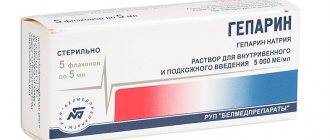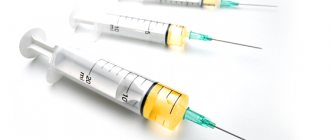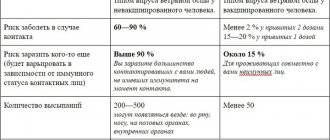12 July 2021, 15:09
(Photo source: proinfekcii.ru).
The southern lands are not always potentially more dangerous. Various living creatures, including microscopic ones, are comfortable in a humid climate closer to the equator. Infections are also easy in developing countries, where it is difficult to comply with medical and sanitary standards. For example, in Tunisia, Morocco or Egypt, vaccinations are not required - there native diseases are tamed and the climate is dry.
- Yellow fever vaccination
- Vaccination against Poliomyelitis
- Vaccination against Meningococcal infection (meningitis)
- Vaccination against Hepatitis A and E
- Vaccination against Hepatitis B
- Vaccination against Cholera
- Vaccination against typhoid fever
- Vaccination against Rabies
- Vaccinations against diphtheria, tetanus, whooping cough
- Vaccination against Tick-borne encephalitis and Japanese Encephalitis
- Prevention against Malaria
- Additional protection methods
Yellow fever vaccination
Yellow fever affects the blood, liver and kidneys. It is carried by mosquitoes, and it is called yellow because infected people often develop jaundice. This does not include headaches, fever, muscle pain and vomiting.
Both adults and children can be vaccinated against yellow fever, starting at 9 months of age. Immunity will last for 10 years, and entry into risk countries is allowed 10 days after vaccination. Don't forget to obtain an international vaccination certificate.
Where is it relevant?
Yellow fever is rampant in almost all of South America: Bolivia, Brazil, Venezuela, Guyana, Colombia, Panama, Peru, Ecuador.
It is also well known by half of Africa: Angola, Guinea, Congo, Cameroon, Kenya, Liberia, Mauritania, Mali, Niger, Sudan, Sierra Leone, Tanzania, Chad, Ethiopia, etc.
If you fly from a risk country to China, you will be asked at the border to confirm that you have been vaccinated against yellow fever. There are similar requirements in Malaysia, the Seychelles and the Maldives. And in India you can even be quarantined for six days.
What vaccinations do you need to get before traveling?
Tanzania, Zanzibar
It is worth noting that Tanzania is a relatively safe African country in terms of diseases. If you follow all precautions, the risk of becoming infected with something dangerous is low.
When sending tourists to Tanzania, it is worth getting vaccinated against yellow fever
.
Its mandatory presence is required when crossing the border from endemic border countries. If tourists arrive in the country on a direct flight, vaccination is not mandatory, but a highly desirable measure. The same applies to vaccinations against typhoid fever, hepatitis A, B and cholera
.
In Zanzibar, an island part of Tanzania, there have been no recorded cases of yellow fever for a long time, so vaccination is not required unless tourists are planning to make an outing to the mainland.
Kenya
Visiting this country does not require official vaccination documentation, but safety requirements are similar to those that apply to Tanzania. Particular attention should be paid to yellow fever
.
You should also be wary of malaria
, which is carried by some types of mosquitoes.
Uganda
When crossing the border of this country, a tourist will be required to have a certificate indicating vaccination against yellow fever.
.
We also recommend vaccinations against hepatitis A and B and meningitis
.
Malaria
is also found in Uganda .
Madagascar
No special vaccinations are required to visit the island nation of Madagascar. However, it is recommended to be vaccinated against typhoid fever, hepatitis A and B, tetanus, and tuberculosis.
There is a danger of contracting
malaria
.
If arriving in Madagascar from mainland Africa, tourists will be asked to show a yellow fever
.
Zimbabwe
According to the consular department of the Russian Foreign Ministry, Zimbabwe is one of the hotspots for the spread of tuberculosis
.
And in September 2021, the spread of the cholera virus was noted here.
Malaria
is practically absent in the central part of the country, but in the valleys of the Limpopo and Zambezi rivers the risk of infection increases sharply.
Ethiopia
Visitors to Ethiopia are advised to get vaccinated against yellow fever
as a preventive measure. It is also worth getting vaccinated against diphtheria, typhoid, hepatitis A and B. Particular attention should be paid to vaccination against meningitis - Ethiopia is on the list of countries where this disease is common.
Vaccination against Poliomyelitis
Poliomyelitis is an infectious disease caused by a virus that affects the nervous system and leads to paralysis. It is considered a childhood scourge (and children under 5 years of age are at risk), but adults can also get polio, and they suffer the disease more severely.
The virus is transmitted from person to person and multiplies in the intestines. Symptoms of polio include fever and headache, muscle weakness or tension, and difficulty swallowing.
The polio vaccine - pink droplets on the tongue - is one of the safest. It can be given even to newborns and sick children. Until the age of 18, a child receives it several times, and as an adult, it is necessary to be vaccinated against polio every 10 years. You can travel to countries affected by polio 4 weeks after vaccination.
Where is it relevant?
Glory to vaccination; for Europeans, polio is already a thing of the past. But there are still states with a polio pandemic - Pakistan and Afghanistan. Tourists who enter the Seychelles and Maldives, Sri Lanka, Qatar, India, Egypt, Brunei, Iran, Iraq and Syria from these countries are required to document that they have been vaccinated against polio.
And to visit Saudi Arabia, everyone needs to be vaccinated against polio.
The local market is the best way to immerse yourself in the culture (and pick up a little something). (Photo source: bestyears.co.uk).
Additional documents
Depending on the purpose of the visit, you should prepare an additional package of documents and submit it to the embassy along with the main official papers.
Guest invitation
When traveling to visit, you must have an invitation from a private person, which indicates the timing of the visit, and a copy of the identity card of the person who issued this invitation.
This citizen must confirm his place of residence, for which he provides copies of payment documents confirming payment of utility services.
The inviting party must confirm in writing the obligation to bear all costs associated with the guest's stay in the country.
When traveling to South Africa for a conference, you will also need an invitation, but not from an individual, but from an organization. The invitation must indicate the dates of the visit. The applicant does not have to provide proof of income. Instead, he must have a letter from his employer stating the purpose of the trip.
If a citizen traveling for courses, trainings, or internships needs a visa, then an original invitation letter from the institution that conducts the training events will be required. This letter indicates that the applicant has enrolled in training, the timing of the courses, and the contact information of the educational institution.
For a sports trip, you should take care of an invitation from a South African sports company, which indicates the timing of the visit and its purpose. Another letter should be written by a Russian sports organization. And it must indicate the timing and purpose of the trip.
If a citizen goes for treatment, he must present a letter from a South African medical organization confirming that the patient is expected. It must indicate the timing of the treatment course. Another letter must be written by the attending physician, in which it is necessary to indicate that the patient needs treatment in South Africa.
Special requirements apply to all invitations. Only originals are provided. The invitations indicate the personal information of both parties and the duration of the visit. If there are family ties, you must report this.
We recommend watching the video: interesting facts about South Africa.
Vaccination against Meningococcal infection (meningitis)
Meningitis is an insidious disease that is sometimes completely asymptomatic. It affects the thin membrane that surrounds the brain and spinal cord, and is transmitted quite simply - by airborne droplets during communication.
Immunity after vaccination against meningitis is formed in 5 days, and lasts for 3-5 or even 10 years - it all depends on the “type” of the vaccine.
Where is it relevant?
Vaccination is recommended if you are going to Saudi Arabia, Nepal, Kenya or the countries of the “meningitis belt” of Africa: Benin, Burkina Faso, Ghana, Congo, Cameroon, Cote d'Ivoire, Mali, Niger, Nigeria, Sudan, Togo, Central African Republic, Chad and Ethiopia. There is also a high incidence in Canada.
All these diseases are so dangerous that tourists are required to be vaccinated against them. But there are also optional vaccinations that you can get for your own peace of mind. There is also nothing pleasant about the diseases they save from.
What is a must see in Africa and how much does it cost?
Safari in Tanzania
Entrance to the national park is 40-50 dollars. But we must not forget that if you go to the Serengeti Park, you will also have to pay for the Ngorongoro crater, and twice. And the safari itself will take at least two days, so you will have to pay twice for the Serengeti.
Rent a safari jeep for a day - from $100.
Guide services - $200.
Accommodation in the national park - from $100.
Kilimanjaro
The cost of climbing to the top of Kilimanjaro is from $1,200.
The cost of climbing to the middle of Kilimanjaro is from $300.
To cut costs, it is best to find safari travel companions and split the cost of the guide and car among 4-6 people. There are even special groups on Facebook where you can find those interested.
Zanzibar
Zanzibar has snow-white beaches, a fairly developed tourist infrastructure, and you can find inexpensive backpacker lodges starting from $20 per night. Actually, Tanzania is the most expensive tourist country in East Africa. Kenya is in second place.
Vaccination against Hepatitis A and E
Viruses that infect the liver are spread through dirty objects, food or water. Symptoms are fever, headache, loss of appetite, nausea, vomiting.
Most often, hepatitis lies in wait for the inhabitants of Africa and Asia, and in Latin America you should also be wary of it. Vaccinations are recommended for travel to all African countries, Asian countries (except Israel), the islands of Oceania (except New Zealand), South American countries, and in North America the risk zone is Alaska, Greenland and Northern Canada.
In Europe, the situation with the hepatitis A virus is unfavorable in the Balkan countries, Romania and Poland, in the southern part of Portugal, Spain and Italy.
The course of vaccinations against hepatitis A and E consists of three injections; six months should pass between the first and last injection - this is the time needed to develop immunity.
Epidemic situation in African countries
Most African countries annually face epidemiological processes, outbreaks of which are difficult to control due to the huge number of favorable factors.
The rapid spread of infections here is facilitated by the low standard of living of the population in most countries of the continent, non-compliance with basic sanitary and hygienic standards, humid climate, military conflicts, low level of medicine, and the like.
Among the most common pathologies of the continent, infectious disease specialists identify:
- hepatitis A is an acute gastrointestinal infection provoked by a virus of the same name and leading to the development of severe liver disorders in the body (spreads through food, water, dirty hands and common objects);
- hepatitis B is a viral liver pathology that is transmitted through blood and other body fluids, for example, sexually;
- diphtheria is an infectious disease of the upper respiratory tract, which can cause swelling and severe intoxication, leading to the death of the patient;
- typhoid fever is a bacterial infection with nutritional transmission that affects most internal organs;
- measles, mumps - infectious diseases familiar to us, which can be accompanied by severe intoxication and numerous complications;
- rabies is a deadly disease transmitted through the bites of wild animals;
- tetanus is an incurable infectious disease that affects the nervous system and causes tonic convulsions throughout the body;
- malaria is an infection with a severe course and severe intoxication syndrome, the main route of spread of which is mosquito bites;
- Yellow fever is one of the most dangerous infections on the African continent, which affects the liver and kidneys and is transmitted through mosquito bites.
Doctors constantly remind travel lovers of the dangers that lie behind the desire to visit exotic countries. Experts recommend that all tourists not risk their health, but before visiting another country, get the necessary vaccinations that will protect themselves from the consequences of complex infectious pathologies.
Vaccination against Hepatitis B
Hepatitis B is another insidious disease that has a long incubation period (up to 180 days) and can be asymptomatic. Dangerous liver infection. Transmitted sexually and through blood. It's not just about transfusions - all activities related to manicures, piercings, tattoos and acupuncture are potentially dangerous to your health.
The hepatitis vaccine is given immediately after birth. It includes three doses and builds immunity for at least 20 years, and maybe for life. So if you were vaccinated according to the rules in childhood, WHO does not recommend revaccination.
An unfavorable situation with hepatitis B is observed in Africa and Asia (with the exception of Japan and South Korea), in the Balkan countries, Eastern Europe and Cyprus. In North America, the risk zone is Greenland, in the South - the Antilles, Belize, Bolivia, Brazil, Venezuela, Guyana, Guatemala, Honduras, the Dominican Republic, El Salvador and Jamaica. In Oceania - all island countries (excluding New Zealand).
The Ganges River in India is sacred, so everything happens in it. Including the transmission of infections. (Photo source: karibu.fm).
Entry rules to South Africa due to COVID-19
1. Entry into the country is allowed to all tourists who provide a negative PCR test done no more than 72 hours before entering the country (counting starts from the moment the samples are taken). The test result must be provided in English and must be printed. Rapid tests are not accepted. The test must have a laboratory seal. 2. If a tourist does not have a printed test, he can send it by email and upon arrival demonstrate the test on electronic media and the fact that the test was sent by email. The subject of the letter should be coded as follows: COVID Certificate IVANOV(last name)/725656565(passport number)/NR1234(arrival flight number)/Arr 10DEC21 (arrival date) 3. If you do not have a negative test with you or you have signs of illness , then upon arrival you take a PCR test (at the tourist’s expense). While waiting for the result, you must book yourself (or through an agent) accommodation for self-isolation. If the test turns out to be positive, then you will go to the hospital or worry about isolation/quarantine yourself (or through an agent). Quarantine lasts at least 14 days and ends with a negative PCR test. 4. A tourist with a negative test can continue traveling. 5. A visa is not required to enter South Africa. 6. Tourists fill out 2 special health forms in advance for entry and exit from the country and provide them in printed form. You can download the forms here: The entry form must be filled out online no earlier than 2 days before entry: The departure form must be filled out online no earlier than 2 days before departure: 7. At the border you may be asked to show proof of booking for all accommodation facilities. 8. All tourists must install an application to establish contacts with those infected with COVID 9. All tourists transiting in South Africa must provide a negative test taken no more than 72 hours before the transfer. 10. All tourists must have medical insurance that covers COVID treatment (the description of the insurance must indicate “COVID covered”). 11. Purchasing travel insurance is not necessary. recommends purchasing travel insurance in advance. Unfortunately, insurance companies do not insure flight cancellations, but it is quite possible to insure yourself in case of illness that prevents you from going on tour, thereby covering your risks. 12. If on board the plane, in two adjacent rows in front, behind and to the side of the passenger, COVID-19 is detected, the passenger will be sent for observation/isolation at his own expense, as someone who has been in contact with the patient. Some insurance companies offer policies with insulation coverage, but these terms must be discussed during the insurance purchase process. 13. The South African government urges all tourists to follow safety measures: maintain hygiene, wear a mask, avoid shaking hands and keep your distance if possible. 14. A testing service is available for tourists during their travel. All testing options and list of laboratories are available upon request. 15. Upon returning to the Russian Federation, it is mandatory to fill out an online form on the State Services website “Providing information on the results of a test for a new coronavirus infection for those arriving on the territory of the Russian Federation from foreign countries,” where you must upload the result of a test for COVID-19 done during the first three days after arrival in the Russian Federation. For violating this requirement, you may be subject to a fine of 14,000 to 40,000 rubles.
Vaccination against Cholera
It sounds like a throwback to the Middle Ages, but people still get cholera in Africa, India, China, Malaysia, Vietnam, Singapore and the Philippines. And they even bring it to Europe!
Cholera is an intestinal infection, it causes severe intoxication and dehydrates the body, and is transmitted through water and food. Manifested by vomiting and diarrhea.
Two cholera vaccines have been developed, both given in two doses with an interval of 2 weeks. After this, they develop approximately 65 percent immunity for about 5 years. Not very impressive, but thanks for that. Unfortunately, vaccination against cholera is not a guarantee of invulnerability, but only part of the prevention that should be carried out in countries at risk. Fortunately, cholera can be treated.
Nowhere in the world are cholera vaccinations now required, but WHO still recommends getting them before traveling to developing parts of the planet.
Vaccination against typhoid fever
Typhoid fever is a severe infection that affects the digestive system, liver, and blood vessels. The bacteria are spread through contaminated water or food, and the symptoms of typhus - headache, fever, nausea, loss of appetite - are often disguised as other illnesses.
Typhoid fever outbreaks are currently occurring in India, Southeast Asia, Africa, and Central and South America. Tourists often suffer from it. Vaccination against typhoid fever may include one or two (25-30 days apart) injections. After 1-2 weeks, immunity is developed for 2 years, and after this period the vaccine must be given again.
(Photo source: publicdomainpictures.net).
Vaccination against Rabies
Rabies is a viral disease that is transmitted by the bite of an infected animal and is deadly. Even if you are not a volunteer who is going to work with animals, but just like to be outdoors or plan to spend the night in a tent, WHO advises you to get vaccinated against rabies before your vacation.
Travels in 150 countries, especially in Vietnam, India, China, Africa and South America.
You should get a rabies vaccination a month (or more) before your trip. This will reduce the number of injections if you are bitten by an infected animal. The course lasts 28 days and consists of three injections. Immunity lasts 3 years.
Vaccinations against diphtheria, tetanus, whooping cough
This “trio” is the bacterial diseases against which children are vaccinated first.
Diphtheria most often occurs as an acute inflammation of the pharynx and nose, but the main threat is not inflammation, but a poisonous toxin produced by the causative bacterium, the diphtheria bacillus. It affects the cardiovascular and nervous systems. Infection occurs through airborne droplets or through dirty hands.
Tetanus is caused by bacteria that live in the soil and intestines of animals. These microorganisms secrete neurotoxins, which lead to tetanus: a person appears to have severe convulsions, but in fact the functioning of the brain is disrupted, and this can lead to respiratory and cardiac arrest.
Whooping cough is a respiratory disease caused by bacteria that live in the mouth, nose and larynx. It manifests itself as a severe cough, and occurs most often in children, so in adults, whooping cough is often mistaken for bronchitis.
A complex vaccine has been developed for diphtheria, tetanus and whooping cough - DTP. In the first year of life, injections are given three times, then once more - at one and a half years, at six years and at 16. After this, you need to be vaccinated every 10 years - at 26, 36, etc.
Even if you missed everything, it's never too late to get vaccinated. It is recommended for children and adults traveling to Asia or Africa. Also at risk are all the islands of Oceania (with the exception of New Zealand), as well as Latin American countries: Ecuador, Peru, Panama, Colombia.
Do I need a visa for a tourist trip?
If a Russian travels for a shorter period, then he will not have to obtain permission, since on March 31, 2021, visa-free entry into the Republic of South Africa was introduced for citizens of the Russian Federation. The same rules for entry into the country apply in 2021.
If a Russian citizen goes to study, work, or is a participant in the SASTS exchange program, then he is required to obtain a visa, even if the duration of the trip does not exceed 90 days.
Appearance of the entry permit to South Africa, which is pasted into the Russian passport
Vaccination against Tick-borne encephalitis and Japanese Encephalitis
Encephalitis is transmitted by ticks, is severe and has dire consequences. Even residents of the capital take risks, let alone those who are going to the mountains and forests, the Urals, Karelia, Siberia or the Volga region. In addition, encephalitis is common in Austria and the Czech Republic. At the same time, you can become infected with encephalitis even through the meat or milk of an infected animal.
Ticks become active in the spring and summer, but vaccinations against encephalitis begin in the fall. Vaccination includes two injections with a break of 1-3 months. Then you need to get vaccinated every year.
Japanese encephalitis, which is transmitted by infected mosquitoes, is active in southern countries. Its virus, from the same company that causes yellow fever or dengue fever, is distributed in 24 countries in Southeast Asia and the Western Pacific. Vaccination is recommended.
(Photo source: montemlife.com).
Prevention against Malaria
Malaria is caused by microscopic single-celled plasmodia, which are transmitted through the bites of infected mosquitoes. Symptoms are fever, chills and headache. They don’t just go away—in both children and adults, internal organs are affected.
Malaria is most prevalent in Africa, Southeast Asia, Latin America and the Middle East. The risk of contracting malaria increases especially during the rainy season or immediately after it, when there are especially many mosquitoes.
Vector control is the basis of malaria prevention: insecticides, mosquito nets - all this cannot be neglected. There are also anti-malarial medications that you need to take before and during your trip.
But there is no vaccine against malaria yet. Only in 2017, a group of American and German scientists reported their first successes: the first phase of clinical trials of a combined malaria vaccine was completed. So far it seems to be quite effective, but there are still several stages of research ahead.
Additional protection methods
Medicine has reached great heights, but viruses and bacteria are not far behind, so there are diseases that cannot be prevented by vaccination. For example, malaria, Ebola, Lassa, Dengue or Zika. All of them are carried by mosquitoes, so you need to save yourself from mosquitoes:
- use mosquito nets,
- buy repellents and
- choose hotels where insect repellent treatments are regularly carried out.
In addition, there are classic rules that will help you avoid health problems in any country:
- drink bottled water;
- do not swim in dirty ponds
- wash your hands before eating and carry an antiseptic with you;
- dine in civilized places and do not try food on the street - unless immediately after heat treatment.
To find out whether vaccinations are necessary and in which countries vaccination is one of the conditions for entry, read the article about vaccinations for foreign countries.
Author of the article: Yulia Vinogradova
Recommendations for travelers
Traveling abroad is always accompanied by the risk of getting sick. Climate change, exotic cuisine, injury during walks, communication with indigenous people and visitors, local water - all this can cause infection with bacterial or viral pathology. An illness can ruin your entire vacation.
To enjoy your holiday in South Africa without encountering problems, travelers should adhere to the following recommendations:
- take a first aid kit with you on the road. It must contain drugs for the prevention and treatment of malaria, antipyretics, painkillers, antidiarrheals, antihistamines, absorbents, antiseptics, and antibiotics. It is also important to stock up on sterile bandages, adhesive plasters, and cotton wool;
- It is better to drink bottled water. In large cities of South Africa, the water is potable, but its composition differs from that available at home, and can make tourists feel unwell;
- It is necessary to take on your trip repellents for mosquitoes and other insects that can be carriers of dangerous infections and viruses;
- take with you cream to protect against the negative effects of ultraviolet rays;
- undergo immunization in advance against all infectious and viral pathologies that may be encountered in Africa;
- write down the contact numbers of the rescue service (1022), ambulance (999), police (10111) and always carry them with you.











